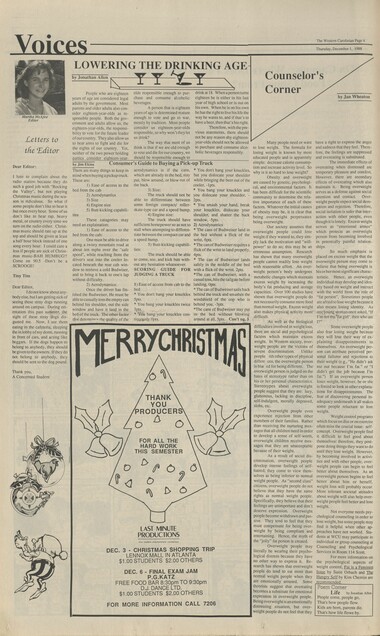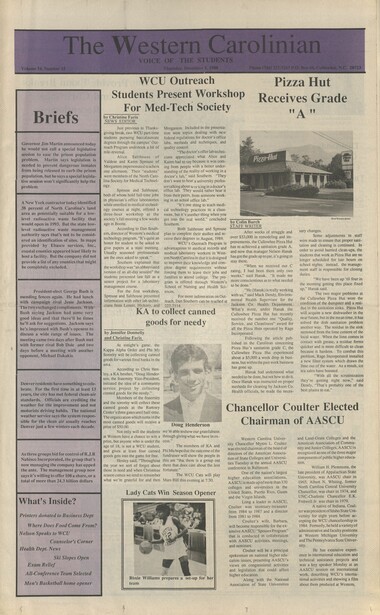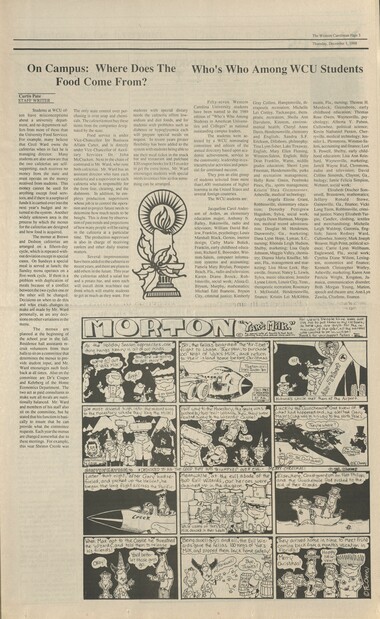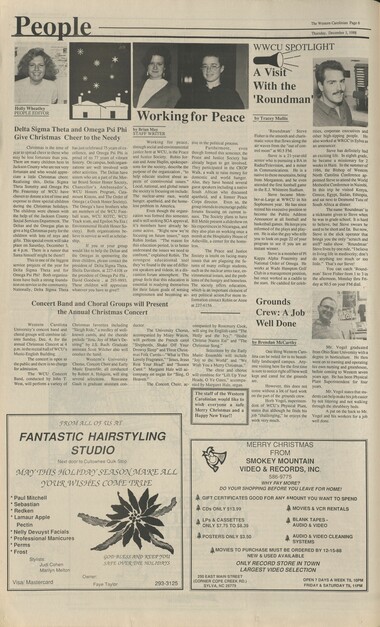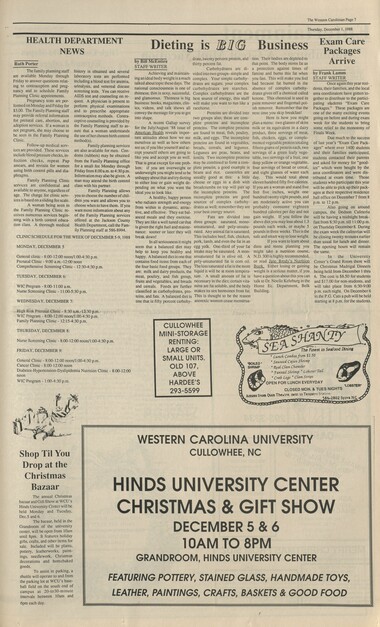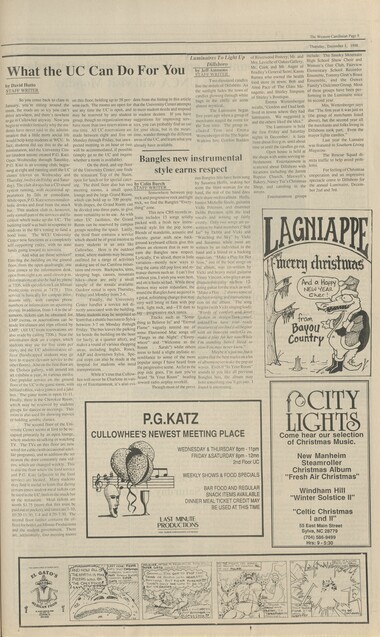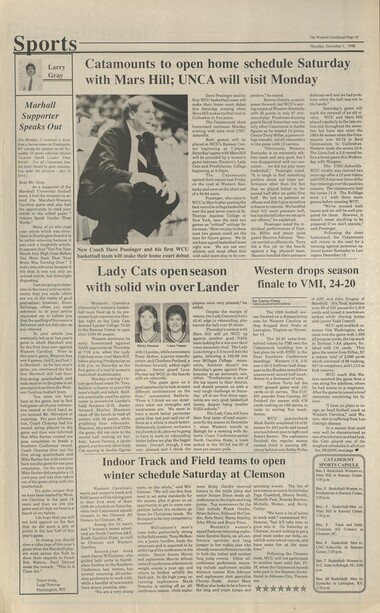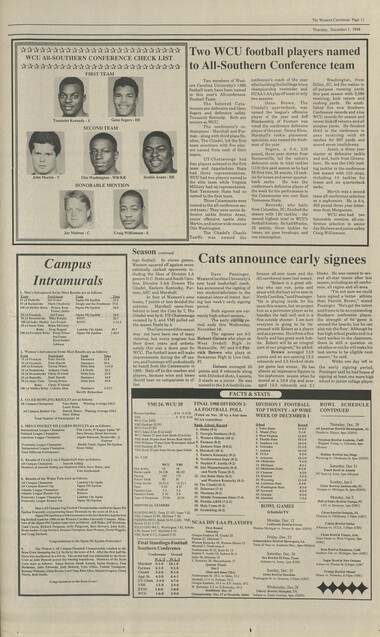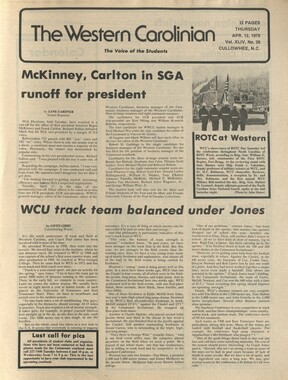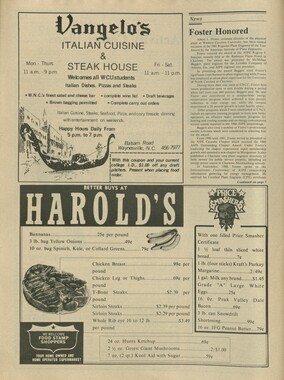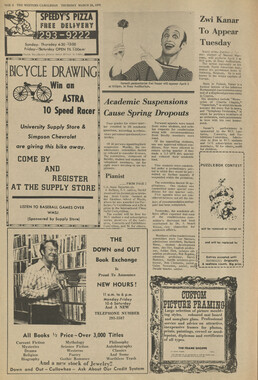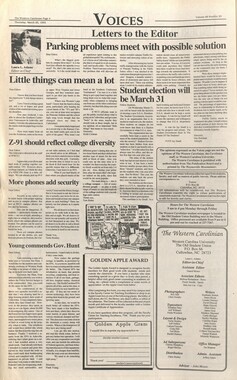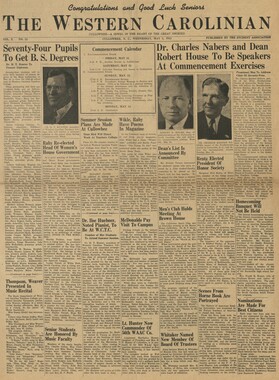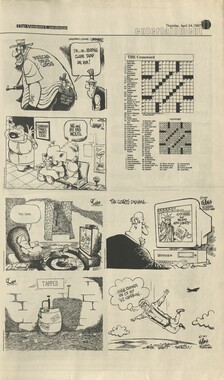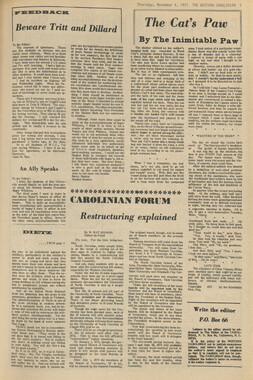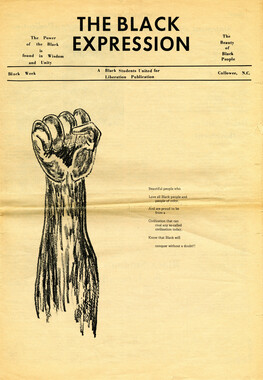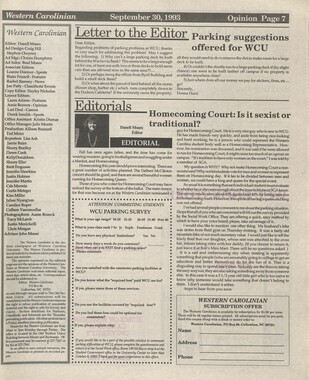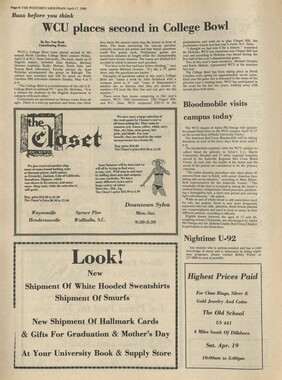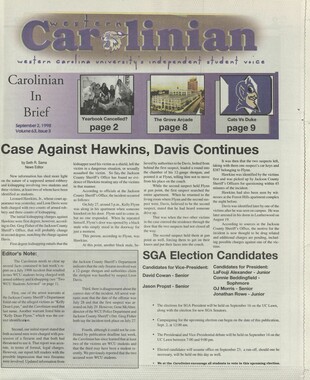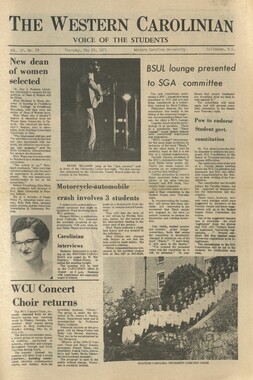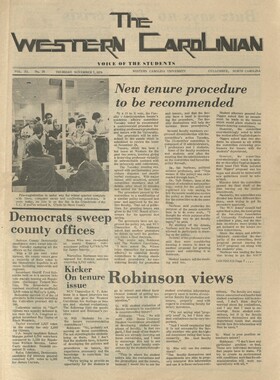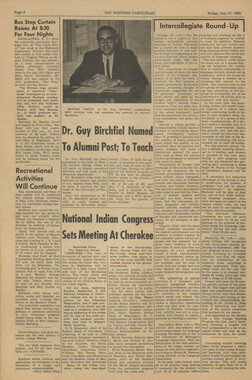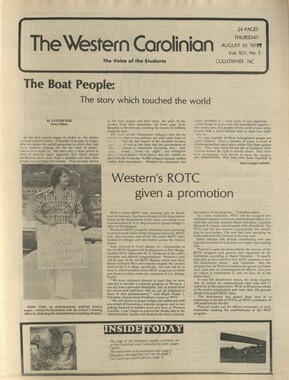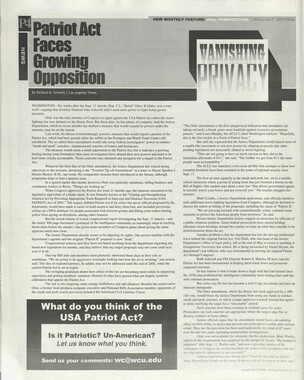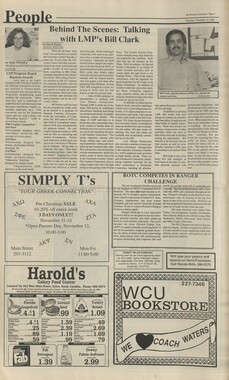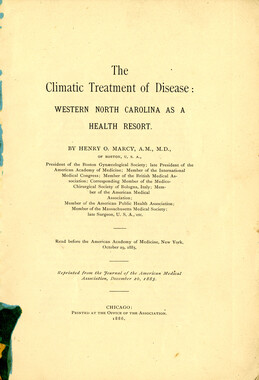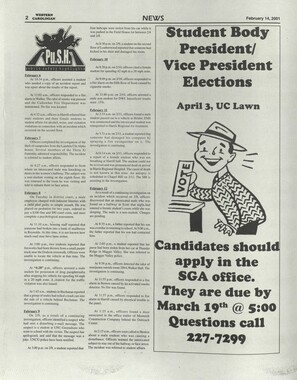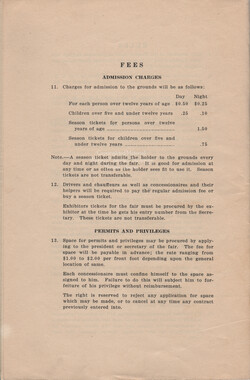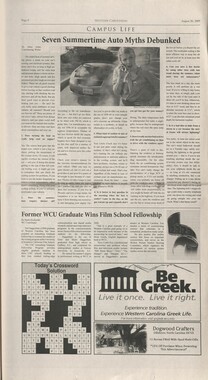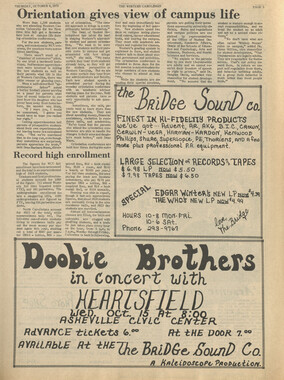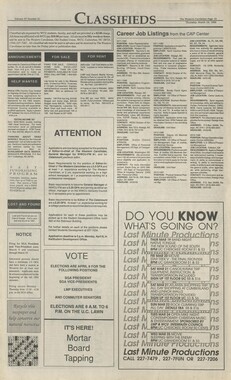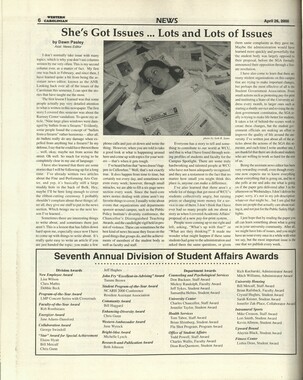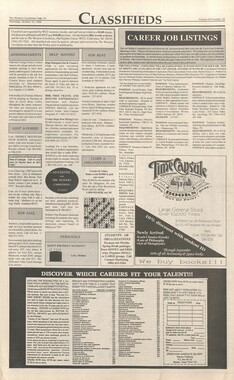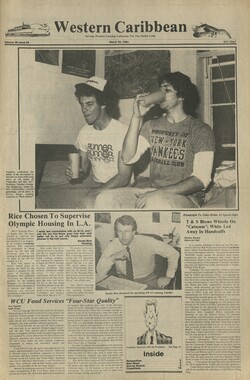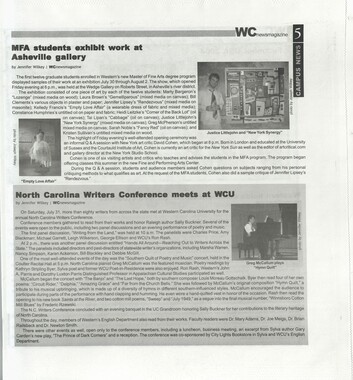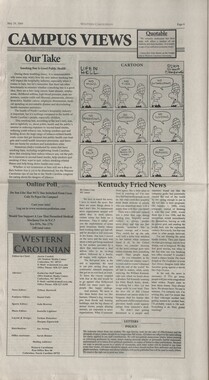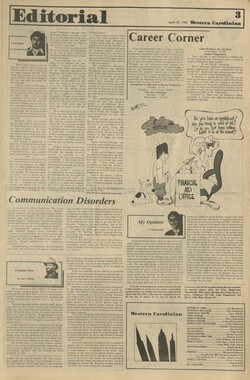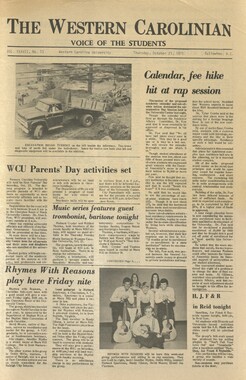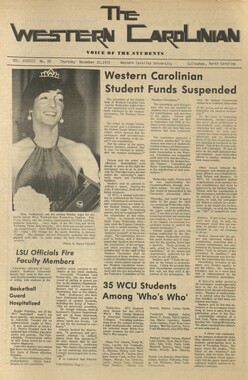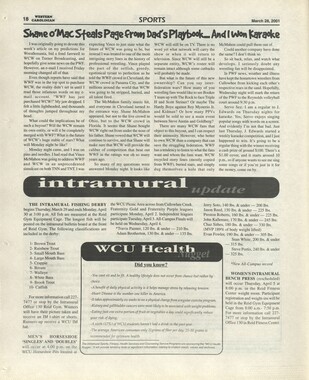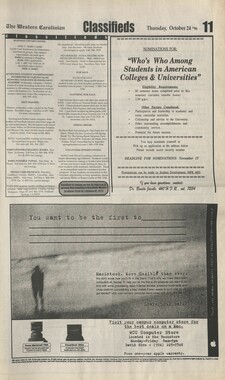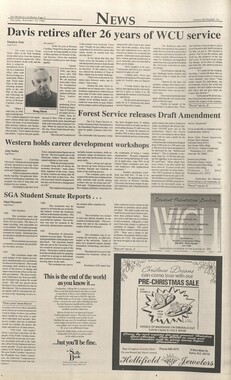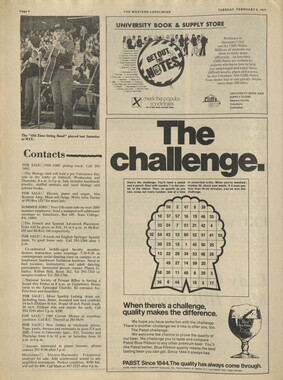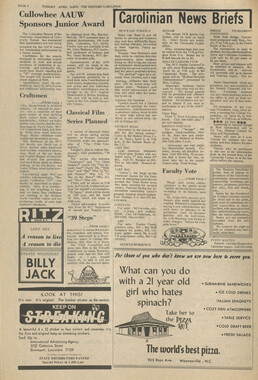Western Carolina University (21)
View all
- Canton Champion Fibre Company (2308)
- Cherokee Traditions (291)
- Civil War in Southern Appalachia (165)
- Craft Revival (1942)
- George Masa Collection (137)
- Great Smoky Mountains - A Park for America (3080)
- Highlights from Western Carolina University (422)
- Horace Kephart (998)
- Journeys Through Jackson (159)
- LGBTQIA+ Archive of Jackson County (89)
- Oral Histories of Western North Carolina (318)
- Picturing Appalachia (6617)
- Stories of Mountain Folk (413)
- Travel Western North Carolina (153)
- Western Carolina University Fine Art Museum Vitreograph Collection (129)
- Western Carolina University Herbarium (92)
- Western Carolina University: Making Memories (738)
- Western Carolina University Publications (2491)
- Western Carolina University Restricted Electronic Theses and Dissertations (146)
- Western North Carolina Regional Maps (71)
- World War II in Southern Appalachia (131)
University of North Carolina Asheville (6)
View all
- Allanstand Cottage Industries (62)
- Appalachian National Park Association (53)
- Bennett, Kelly, 1890-1974 (1463)
- Berry, Walter (76)
- Brasstown Carvers (40)
- Carver, George Washington, 1864?-1943 (26)
- Cathey, Joseph, 1803-1874 (1)
- Champion Fibre Company (233)
- Champion Paper and Fibre Company (297)
- Cherokee Indian Fair Association (16)
- Cherokee Language Program (22)
- Crowe, Amanda (40)
- Edmonston, Thomas Benton, 1842-1907 (7)
- Ensley, A. L. (Abraham Lincoln), 1865-1948 (275)
- Fromer, Irving Rhodes, 1913-1994 (70)
- George Butz (BFS 1907) (46)
- Goodrich, Frances Louisa (120)
- Grant, George Alexander, 1891-1964 (96)
- Heard, Marian Gladys (60)
- Kephart, Calvin, 1883-1969 (15)
- Kephart, Horace, 1862-1931 (313)
- Kephart, Laura, 1862-1954 (91)
- Laney, Gideon Thomas, 1889-1976 (439)
- Masa, George, 1881-1933 (61)
- McElhinney, William Julian, 1896-1953 (44)
- Niggli, Josephina, 1910-1983 (10)
- North Carolina Park Commission (105)
- Osborne, Kezia Stradley (9)
- Owens, Samuel Robert, 1918-1995 (11)
- Penland Weavers and Potters (36)
- Roberts, Vivienne (15)
- Roth, Albert, 1890-1974 (142)
- Schenck, Carl Alwin, 1868-1955 (1)
- Sherrill's Photography Studio (2565)
- Southern Highland Handicraft Guild (127)
- Southern Highlanders, Inc. (71)
- Stalcup, Jesse Bryson (46)
- Stearns, I. K. (213)
- Thompson, James Edward, 1880-1976 (226)
- United States. Indian Arts and Crafts Board (130)
- USFS (683)
- Vance, Zebulon Baird, 1830-1894 (1)
- Weaver, Zebulon, 1872-1948 (58)
- Western Carolina College (230)
- Western Carolina Teachers College (282)
- Western Carolina University (2008)
- Western Carolina University. Mountain Heritage Center (18)
- Whitman, Walt, 1819-1892 (10)
- Wilburn, Hiram Coleman, 1880-1967 (73)
- Williams, Isadora (3)
- Cain, Doreyl Ammons (0)
- Crittenden, Lorraine (0)
- Rhodes, Judy (0)
- Smith, Edward Clark (0)
- Appalachian Region, Southern (3032)
- Asheville (N.C.) (1945)
- Avery County (N.C.) (26)
- Blount County (Tenn.) (195)
- Buncombe County (N.C.) (1680)
- Cherokee County (N.C.) (283)
- Clay County (N.C.) (556)
- Graham County (N.C.) (238)
- Great Smoky Mountains National Park (N.C. and Tenn.) (535)
- Haywood County (N.C.) (3573)
- Henderson County (N.C.) (70)
- Jackson County (N.C.) (4925)
- Knox County (Tenn.) (35)
- Knoxville (Tenn.) (13)
- Lake Santeetlah (N.C.) (10)
- Macon County (N.C.) (421)
- Madison County (N.C.) (216)
- McDowell County (N.C.) (39)
- Mitchell County (N.C.) (135)
- Polk County (N.C.) (35)
- Qualla Boundary (982)
- Rutherford County (N.C.) (78)
- Swain County (N.C.) (2185)
- Transylvania County (N.C.) (270)
- Watauga County (N.C.) (12)
- Waynesville (N.C.) (86)
- Yancey County (N.C.) (72)
- Aerial Photographs (3)
- Aerial Views (60)
- Albums (books) (4)
- Articles (1)
- Artifacts (object Genre) (228)
- Bibliographies (1)
- Biography (general Genre) (2)
- Cards (information Artifacts) (38)
- Clippings (information Artifacts) (193)
- Copybooks (instructional Materials) (3)
- Crafts (art Genres) (622)
- Depictions (visual Works) (21)
- Design Drawings (1)
- Digital Moving Image Formats (2)
- Drawings (visual Works) (185)
- Envelopes (115)
- Exhibitions (events) (1)
- Facsimiles (reproductions) (1)
- Fiction (general Genre) (4)
- Financial Records (12)
- Fliers (printed Matter) (67)
- Glass Plate Negatives (381)
- Guidebooks (2)
- Internegatives (10)
- Interviews (823)
- Land Surveys (102)
- Letters (correspondence) (1070)
- Manuscripts (documents) (618)
- Maps (documents) (177)
- Memorandums (25)
- Minutes (administrative Records) (59)
- Negatives (photographs) (6090)
- Newsletters (1290)
- Newspapers (2)
- Notebooks (8)
- Occupation Currency (1)
- Paintings (visual Works) (1)
- Pen And Ink Drawings (1)
- Periodicals (194)
- Personal Narratives (10)
- Photographs (12977)
- Plans (maps) (1)
- Poetry (6)
- Portraits (4568)
- Postcards (329)
- Programs (documents) (181)
- Publications (documents) (2444)
- Questionnaires (65)
- Relief Prints (26)
- Sayings (literary Genre) (1)
- Scrapbooks (282)
- Sheet Music (2)
- Slides (photographs) (402)
- Songs (musical Compositions) (2)
- Sound Recordings (802)
- Specimens (92)
- Speeches (documents) (18)
- Tintypes (photographs) (8)
- Transcripts (329)
- Text Messages (0)
- A.L. Ensley Collection (275)
- Appalachian Industrial School Records (7)
- Appalachian National Park Association Records (336)
- Axley-Meroney Collection (2)
- Bayard Wootten Photograph Collection (20)
- Bethel Rural Community Organization Collection (7)
- Blumer Collection (5)
- C.W. Slagle Collection (20)
- Canton Area Historical Museum (2110)
- Carlos C. Campbell Collection (462)
- Cataloochee History Project (64)
- Cherokee Studies Collection (4)
- Daisy Dame Photograph Album (5)
- Daniel Boone VI Collection (1)
- Doris Ulmann Photograph Collection (112)
- Elizabeth H. Lasley Collection (1)
- Elizabeth Woolworth Szold Fleharty Collection (4)
- Frank Fry Collection (95)
- George Masa Collection (173)
- Gideon Laney Collection (452)
- Hazel Scarborough Collection (2)
- Hiram C. Wilburn Papers (28)
- Historic Photographs Collection (236)
- Horace Kephart Collection (861)
- Humbard Collection (33)
- Hunter and Weaver Families Collection (1)
- I. D. Blumenthal Collection (4)
- Isadora Williams Collection (4)
- Jesse Bryson Stalcup Collection (47)
- Jim Thompson Collection (224)
- John B. Battle Collection (7)
- John C. Campbell Folk School Records (80)
- John Parris Collection (6)
- Judaculla Rock project (2)
- Kelly Bennett Collection (1482)
- Love Family Papers (11)
- Major Wiley Parris Civil War Letters (3)
- Map Collection (12)
- McFee-Misemer Civil War Letters (34)
- Mountain Heritage Center Collection (4)
- Norburn - Robertson - Thomson Families Collection (44)
- Pauline Hood Collection (7)
- Pre-Guild Collection (2)
- Qualla Arts and Crafts Mutual Collection (12)
- R.A. Romanes Collection (681)
- Rosser H. Taylor Collection (1)
- Samuel Robert Owens Collection (94)
- Sara Madison Collection (144)
- Sherrill Studio Photo Collection (2558)
- Smoky Mountains Hiking Club Collection (616)
- Stories of Mountain Folk - Radio Programs (374)
- The Reporter, Western Carolina University (510)
- Venoy and Elizabeth Reed Collection (16)
- WCU Gender and Sexuality Oral History Project (36)
- WCU Mountain Heritage Center Oral Histories (25)
- WCU Oral History Collection - Mountain People, Mountain Lives (71)
- WCU Students Newspapers Collection (1923)
- Western North Carolina Tomorrow Black Oral History Project (69)
- William Williams Stringfield Collection (2)
- Zebulon Weaver Collection (109)
- African Americans (390)
- Appalachian Trail (35)
- Artisans (521)
- Cherokee art (84)
- Cherokee artists -- North Carolina (10)
- Cherokee language (21)
- Cherokee pottery (101)
- Cherokee women (208)
- Church buildings (190)
- Civilian Conservation Corps (U.S.) (111)
- College student newspapers and periodicals (2012)
- Dams (108)
- Dance (1023)
- Education (222)
- Floods (63)
- Folk music (1015)
- Forced removal, 1813-1903 (2)
- Forest conservation (220)
- Forests and forestry (1198)
- Gender nonconformity (4)
- Great Smoky Mountains National Park (N.C. and Tenn.) (181)
- Hunting (47)
- Landscape photography (25)
- Logging (122)
- Maps (83)
- Mines and mineral resources (9)
- North Carolina -- Maps (18)
- Paper industry (38)
- Postcards (255)
- Pottery (135)
- Railroad trains (72)
- Rural electrification -- North Carolina, Western (3)
- School integration -- Southern States (2)
- Segregation -- North Carolina, Western (5)
- Slavery (5)
- Sports (452)
- Storytelling (243)
- Waterfalls -- Great Smoky Mountains (N.C. and Tenn.) (66)
- Weaving -- Appalachian Region, Southern (280)
- Wood-carving -- Appalachian Region, Southern (328)
- World War, 1939-1945 (174)
Western Carolinian Volume 54 Number 15
Item
Item’s are ‘child’ level descriptions to ‘parent’ objects, (e.g. one page of a whole book).
-
-
Voices The Western Carolinian Page 4 Thursday, December 1, 1988 LOWERING THE DRINKING AGE bv Jonathan Allen S :FfitT Martha McAfee Editor Letters to the "Editor Dear Editor: I hate to complain about the radio station because they do such a good job with "Rocking the Valley", but not playing Christmas music during the season is ridiculous. So what if some people don't like to hear it but once every hour. Some of us don't like to hear rap, heavy metal, or country every time we turn on the radio either. Christmas music should rate up at the top and should be given at least a half hour block instead of one song every hour. I could care a less if people are sick of Christmas music-BAH HUMBUG!! Come on 90.5 -Don't be a SCROOGE! Tiny Tim Dear Editor, I do not know about anybody else, but I am getting sick of seeing these stray dogs running around on campus. During orientation this past summer, the sight of these stray dogs disgusted me. Now, I see them eating in the cafeteria, sleeping the in lobby of my dorm, running in front of cars, and acting like beggars. If the dogs happen to belong to anybody, they should be given to the owners. If they do not belong to anybody, they should be sent to the dog pound. Thank you, A Concerned Student People who are eighteen years of age are considered legal adults by the government. Most parents and older adults also consider eighteen-year-olds as responsible people. Both the government and adults allow us, the eighteen-year-olds, the responsibility to vote for the future leader ofourcountry. They also allow us to bear arms to fight and die for the eights of our country. Yet, neither of the two power holding parties consider eightecn-ycar- olds responsible enough to purchase and consume alcoholic beverages. A person that is eighteen years of age is determined mature enough to vote and go to war, mostly by tradition. Most people consider us eighteen-year-olds responsible, so why won't they let us drink? The way that most of us think is that if we are old enough to vote and die for our country, we should be responsible enough to drinkatl8. When a person turns eighteen he is either in his last year of high school or is out on his own. When he is on his own he has the right to live his life the way he wants to, and if that's to have a beer, then that's his right. Therefore, with the previous statements, there should not be any reason shy eighteen- year-olds should not be allowed to purchase and consume alcoholic beverages responsibly. by Jim Kkins Consumer There arc many things to keep in mind when buying a pickup truck. These are: 1) Ease of access to the bed from the cab 2) Aerodynamics 3) Size 4) Engine size 5) Butt-kicking capabilities These catagories may need an explaination: 1) Ease of access to the bed from the cab: One must be able to drive along a twisty mountain road at about ten mphs over the "safe speed", while reaching from the driver's seat into the cooler located beneath the rear cab window to retrieve a cold Budwiser, and to bring it back to one's lap without difficulty. 2) Aerodynamics: Once the driver has finished the Budweiser, He must be able to casually toss the empty can behind his shoulder, out the side window and have it land in the bed of the truck. The other factor that determines the quality of the 's Guide to Buying a Pick aerodynamics is if the cans, which are already in the bed, stay put, blow around, or blow out of the back. 3) Size: The truck should not be able to differentiate between some foreign compact/ roller- skate-type car and a speed bump. 4) Engine size: The truck should have sufficient horsepower so as not to stall when attempting to differentiate between the compact car and a speed bump. 5) Butt-kicking capabilities: The truck should be able to come, see, and kick butt without any hesitation whatsoever. SCORING GUIDE FOR JUDGING A TRUCK 1) Ease of access from cab to the bed * You don't bang your knuckles 5pts. * You bang your knuckles twice * You bang your knuckles continuously Opts. up Truck * You don't bang your knuckles, but you dislocate your shoulder while bringing the beer out of the cooler, -lpts. * You bang your knuckles and you dislocate your shoulder, - 2pts. * You smash your hand, break your knuckles, dislocate your shoulder, and shatter the back window, -5pts. 2) Aerodynamics * The cans of Budweiser land in the bed without a flick of the wrist, 6pts. * The can of Budweiser requires a flick of the wrist to land properly, 4pts. * The can of Budweiser lands safely in the middle of the bed with a flick of the wrist. 2pts. *The can of Budweiser, with a casual toss, hits the tailgate before landing, Opts. * The can of Budweiser sails back behind the truck and smashes the windshield of the cop who is behind you, -3pts. *The cans of Budweiser stay put in the bed without blowing around at all, 5pts. Con't pg. 5 Counselor's Corner by Jan Wheaton Many people need or want to lose weight. The formula for losing weight is known by most educated people and is apparently simple: decrease calorie consumption and increase activity level. So why is it so hard to lose weight? Obesity and overweight arc caused by genetic, psychological, and environmental factors. It has been difficult for the scientific community to determine the relative importance of each of these factors. Whatever the initial causes of obesity may be, it is clear that being overweight perpetuates being overweight. Our society assumes that overweight people could lose weight if they wanted to, they simply lack the motivation and "willpower" to do so; this may be an erroneous assumption. Research has shown that many overweight people cannot readily lose weight with reasonable effort. An overweight person's body undergoes metabolic changes which maintain excess weight by increasing the body's fat producing and storage capacities. Over 100 studies have shown that overweight people do not necessarily consume more food than normal weight. Excess weight also makes physical activity more difficult. As well as the biological difficulties involved in weight loss, there are social and psychological factors which maintain excess weight. In Western society, overweight people are the victims of severe discrimination. Unlike people ith other types of physical differc ces, the overweight person is blai ed for being different. The overweight person is judged on the basis of stereotype rather than on his or her personal characteristics. Stereotypes about overweight people suggest that they are: lazy, gluttonous, lacking in discipline, self-indulgent, morally depraved, slobs, etc. Overweight people even experience rejection from other members of their families. Rather than receiving the nurturing messages that all children need in order to develop a sense of self-worth, overweight children receive messages that they are unacceptable because of their weight. As a result of social discrimination, overweight people develop intense feelings of self- hatred; they come to view themselves as being inferior to normal weight people. As "second class" citizens, overweight people do not believe that they have the same rights as normal weight people. Specifically, they believe that their feelings are unimportant and don't deserve expression. Overweight people become withdrawn and passive. They tend to feel that they must compensate for being overweight by being compliant and entertaining. Hence, the myth of the "jolly" fat person is created. Overweight people may literally be wearing their psychological distress because they have no other way to express it. Research has shown that overweight people do tend to eat more than normal weight people when they are emotionally aroused. Some theorists suggest that overeating becomes a substitute for emotional expression in overweight people. Being overweight is an emotionally distressing situation, but overweight people do not feel that they have a right to express the anger and sadness that they feel. Therefore, the feelings are suppressed and overeating is substituted. The immediate effects of overeating when distressed are temporary pleasure and comfort. However, there are secondary effects of overeating which also maintain it. Being overweight serves as a defense against social attention and contact. Overweight people expect social derogation and rejection. Therefore, social isolation is safer that interaction with other people, even though it is lonely. Excess weight serves as "emotional armor" which protects an overweight person from becoming involved in potentially painful relationships. So much emphasis is placed on excess weight that the overweight person may come to believe that being overweight is his or her most significant characteristic. Hence, an overweight individual may develop and identity based on weight and interact with the world from the role of "fat person". Sometimes people are afraid to lose weight because it also means losing identity. As one young woman once asked, "If I'm not the 'fat girl', then who am I?" Some overweight people also fear losing weight because they will lose their way of explaining disappointments to themselves. An overweight person can attribute perceived personal failures and rejections to their weight (e.g., "He didn't ask me out because I'm fat." or "I didn't get the job because I'm fat.") If an overweight person loses weight, however, he or she is forced to look at other explanations for disappointments. The fear of discovering personal inadequacy underneath it all makes some people reluctant to lose weight. Weight control programs which focus on dist or on exercise often miss the crucial issue: self- concept. Overweight people find it difficult to feel good about themselves: therefore, they postpone doing things they want to do until they lose weight. However, by becoming involved in activities and with other people, overweight people can begin to feel better about themselves. As an overweight person begins to feel better about him or herself, weight loss will probably occur. More tolerant societal attitudes about weight will also help overweight people feel better and lose weight. Not everyone needs psychological counseling in order to lose weight, but some people may find it helpful when other approaches have not worked. Students at WCU may participate in individual or group counseling at Counseling and Psychological Services in Room 114 Scott. For more information on the psychological aspects of weight control, Fat is a Feminist Issue by Susie Orbach and The Hungry Self by Kim Chemin are recommended. Life by Jonathan Allen People come, people go, That's how people flow. Kids are born, parents die. That's how life flows by.
Object
Object’s are ‘parent’ level descriptions to ‘children’ items, (e.g. a book with pages).
-
The Western Carolinian is Western Carolina University’s student-run newspaper. The paper was published as the Cullowhee Yodel from 1924 to 1931 before changing its name to The Western Carolinian in 1933.
-
